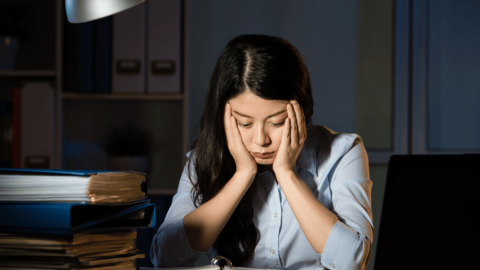Suboxone is meant to help you feel normal, reducing cravings and withdrawal symptoms so you can focus on recovery. But for some people, it comes with an unexpected side effect—fatigue and drowsiness.
If you feel constantly tired, sluggish, or even nodding off after taking Suboxone, you might be wondering:
- Is this normal?
- Is my Suboxone dose too high?
- Should I switch the time of day I take Suboxone?
- Will this Suboxone side effect go away?
Let’s break down why Suboxone can make some people feel sleepy, what factors contribute to this side effect, and how you can adjust your treatment for better energy levels.
Can Suboxone Cause Fatigue?
Yes, Suboxone can make some people feel tired, especially in the early stages of treatment.
This is because buprenorphine (the active ingredient in Suboxone) is a partial opioid agonist, meaning it activates opioid receptors—but only partially compared to full opioids like heroin or oxycodone.
While Suboxone isn’t as sedating as full opioids, it can still cause mild drowsiness or fatigue, especially when your body is adjusting to the medication.
Why Does Suboxone Make Some People Sleepy?
1. Your Dose Might Be Too High
One of the most common reasons for Suboxone-related fatigue is being on a higher dose than your body needs.
Signs Your Dose May Be Too High:
- Feeling groggy, sluggish, or spaced out
- Trouble staying alert, especially after taking your dose
- Drowsiness that lasts all day instead of just an hour or two
Solution: If you suspect your dose is too high, talk to your doctor about gradually reducing it to see if you feel more alert while still controlling cravings.
Example: Someone taking 24 mg of Suboxone daily feels exhausted within an hour of dosing. After discussing with their doctor, they lower their dose to 16 mg, and their energy levels improve without triggering withdrawal symptoms.
2. You’re Taking It at the Wrong Time of Day
Some people feel a wave of tiredness shortly after taking Suboxone, while others experience a delayed drowsiness later in the day.
Morning vs. Evening Dosing:
- If you feel sleepy soon after dosing, taking Suboxone at night may help.
- If fatigue hits later in the day, switching to a morning dose could keep you alert.
- If Suboxone causes sleep disturbances, you may need to adjust your timing or split your dose.
Solution: Experiment with different dosing times to see when your body responds best. But be sure to consult a healthcare professional before starting.
3. Your Body Is Still Adjusting to Suboxone
Fatigue is common during the first few weeks of Suboxone treatment as your body adjusts to the medication.
- Opioid addiction alters brain chemistry, and Suboxone helps rebalance it.
- This process takes time, and temporary drowsiness may be part of the adjustment period.
Solution: If fatigue is mild and improving over time, give your body a few weeks to adjust before making changes.
4. Other Medications or Health Conditions May Be Involved
If you’re taking other medications, they could be interacting with Suboxone and making you more tired.
Common Medications That Can Increase Drowsiness:
- Benzodiazepines (Xanax, Valium, Klonopin)
- Antidepressants (such as SSRIs or SNRIs)
- Muscle relaxers
- Antihistamines (like Benadryl)
- Sleep aids
Solution: If you’re taking other medications, talk to your doctor about adjusting dosages or switching to less sedating options.
How to Fight Suboxone Fatigue: Tips for Staying Alert
If Suboxone is making you tired, try these strategies to improve energy levels:
- Adjust Your Dose – A lower dose may reduce drowsiness without increasing cravings.
- Change Your Dosing Time – If you feel sleepy after taking Suboxone, try switching to nighttime dosing.
- Get Moving – Exercise boosts natural energy levels and reduces fatigue.
- Stay Hydrated and Eat Well – Dehydration and poor nutrition worsen fatigue.
- Limit Sedating Medications – If you’re taking other drowsy medications, talk to your doctor about alternatives.
- Give It Time – If you just started Suboxone, fatigue may improve as your body adjusts.
When to Talk to a Doctor About Suboxone Fatigue
If you experience severe or persistent drowsiness that affects your daily life, it’s time to consult your doctor.
You may need to:
- Adjust your dose to a lower amount.
- Change your dosing schedule to morning or evening.
- Address other medications that could be increasing fatigue.
Key Takeaway: Suboxone fatigue is often fixable with the right adjustments to dose, timing, or lifestyle habits.
How QuickMD Can Help with Suboxone Side Effects
If Suboxone makes you too tired, QuickMD’s online doctors can help adjust your treatment for better energy levels and symptom control.
QuickMD’s online Suboxone treatment offers:
- Same-day prescriptions sent to your pharmacy
- Online doctor visits—no in-person clinic required
- Support for dose adjustments and side effect management
- Affordable, confidential addiction treatment
Final Thoughts
If Suboxone is making you sleepy or fatigued, there are solutions.
- Your dose may be too high and need adjustment.
- Changing your dosing time could help manage energy levels.
- Your body may still be adjusting, and symptoms may improve over time.
- Other medications or health conditions might be contributing to drowsiness.
Fatigue shouldn’t stop you from getting the benefits of Suboxone. The good news? With the right adjustments, you can feel more alert while staying on track in your recovery.Need help fine-tuning your Suboxone treatment? Book a QuickMD appointment today.




